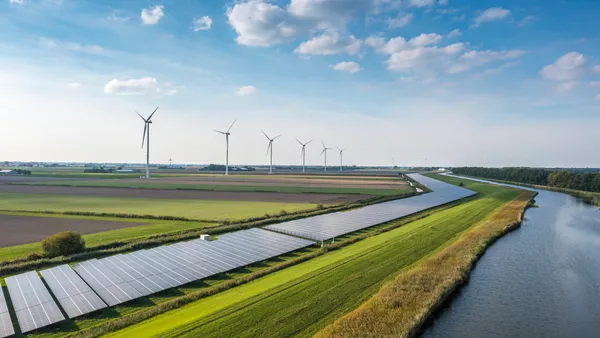The federal government should make more of an effort to consult tribal organizations and the fishing industry about offshore wind development, the Government Accountability Office said in a report released Monday.
GAO also recommended that the directors of the Bureau of Ocean Energy Management and the Bureau of Safety and Environmental Enforcement “establish guidance for lessees with respect to lessees' communication and engagement plans” and that the bureaus “take steps to ensure that they have sufficient resources in place to oversee offshore wind energy development” with actions such as establishing a physical office to oversee development in the North Atlantic region.
The BOEM director should also “develop guidance and specific requirements for lessees' data collection and sharing across offshore wind energy projects,” the report said.
The GAO report recommends that Congress amend legislative language to “address limitations in BOEM’s authority” to allow the agency to “provide adequate support for capacity building for Tribes and tribal organizations that provide Indigenous expertise to the offshore wind leasing process.”
In addition, the report recommends that BOEM itself “address gaps in its approach to tribal consultation, including clearly demonstrating and routinely reporting on its progress” with actions like “ensuring that annual tribal consultation reports clearly document decisions regarding tribal implications and preparing and submitting to Tribes a record of consultation that describes input and how it was addressed, as well as the reasoning for any instances in which input was not incorporated.”
Tribes “have raised concerns regarding BOEM’s consultation with them,” GAO said, adding that BOEM has “taken steps to incorporate tribal input but has not consistently engaged in meaningful consultation with Tribes.”
The BOEM director should also “take steps to ensure that [the bureau] adequately demonstrates and publicly reports its consideration of fishing industry input,” GAO said.
In a letter responding to the report, the Department of the Interior wrote that it “generally agrees with the report findings” but noted that the report does not acknowledge the “impact” of President Trump’s Jan. 20 executive order on offshore wind, which temporarily withdrew all waters on the Outer Continental Shelf from consideration for offshore wind leasing.
In response to each of the five recommendations, Interior wrote that it “concurs to the extent that this recommendation can be implemented consistent with the Presidential Memorandum.”
The agency said that 21 Republican members of the House of Representatives, including Rep. Bruce Westerman, R-Ark., the chairman of the Committee on Natural Resources, had requested the report.
“We provided a draft of this report to the Advisory Council on Historic Preservation, Commerce (NOAA), [the Department of Defense], [the Department of Energy], [the Environmental Protection Agency], Department of Homeland Security (Coast Guard), Interior (BOEM and BSEE), and the Marine Mammal Commission for review and comment,” GAO said. The Advisory Council on Historic Preservation, EPA, Coast Guard, and Interior provided technical comments in response, according to the report.















